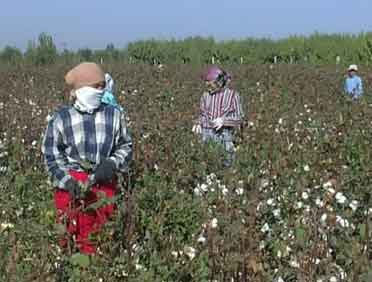
Jul 8, 2016
An Uzbek victim of forced labor in cotton production and three human rights defenders filed a complaint against the World Bank’s private lending arm, the International Finance Corporation (IFC), according to a coalition of human rights groups.
The June 30 complaint seeks an investigation into forced labor connected to a $40 million loan to Indorama Kokand Textile, which operates in Uzbekistan. The forced labor victim, who requested confidentiality, and the rights defenders Dmitry Tikhonov, Elena Urlaeva and a third who requested confidentiality, presented evidence that the loan to expand the company’s cotton manufacturing facilities in Uzbekistan allows it to profit from forced labor and sell illicit goods.
“The IFC should support sustainable rural development in Uzbekistan, not projects that perpetuate the government’s forced-labor system for cotton production,” says Tikhonov, who lives is in exile in France following possible retaliation—including the burning of his home—for his efforts to document forced labor in Uzbekistan.
“The ombudsman should investigate the IFC loan to Indorama, which we believe violates international law and the IFC’s own policies prohibiting forced labor.” The Cotton Campaign, the Uzbek-German Forum for Human Rights, the International Labor Rights Forum, and Human Rights Watch jointly announced the complaint.
1 Million in Forced Labor Each Year
Each year, the Uzbek government, which controls all of the country’s cotton production and sales, forces more than 1 million teachers, nurses and others to pick cotton for weeks. Last year, the government went to extreme measures—including jailing and physically abusing researchers independently monitoring the process—to cover up its actions.
Uzbekistan was downgraded to the lowest ranking in the U.S. State Department’s annual Trafficking in Persons report which was released last month.
The World Bank has invested more than $500 million in Uzbekistan’s agricultural sector. Following a complaint from Uzbek civil society, the bank attached loan covenants stipulating that the loans could be stopped and subject to repayment if forced or child labor was detected in project areas by monitors from the International Labor Organization (ILO), contracted by the World Bank to carry out labor monitoring during the harvest.
The World Bank approved the loan to Indorama in December 2015, despite an ILO report reaffirming the problem of forced labor.
In March, Cotton Campaign, a coalition of labor and human rights groups that includes the Solidarity Center, presented a petition signed by more than 140,000 people from around the world to World Bank President Dr. Jim Yong Kim, calling on the bank to suspend lending to the agriculture sector in Uzbekistan until the Uzbek government changes its policy of forced labor in the cotton industry.
Read the complaint here.
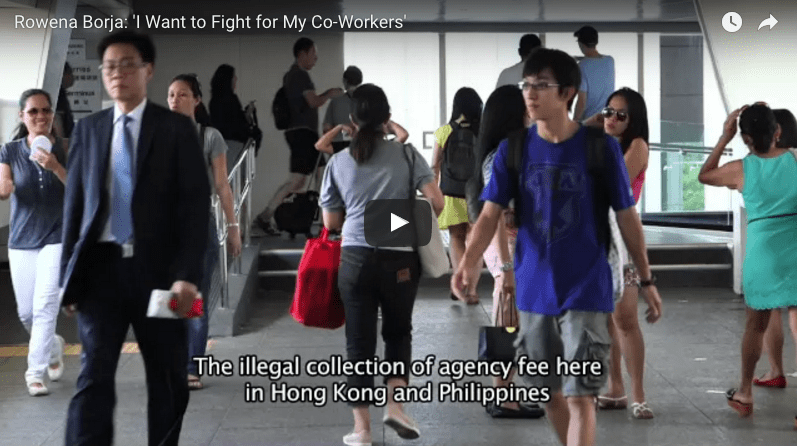
Jul 7, 2016
Win Nay Aung Thant works from 7 a.m. to 6 p.m. or 7 p.m., at a garment factory in Myanmar and is paid just enough to survive. The factory’s electrical wiring is unsafe and Win says “after a day’s work, we are happy to still be alive.”
Jul 7, 2016
Like many migrant workers, Filipinos seeking domestic work in other countries must pay large fees to labor brokers to get a job–a situation that leads to human trafficking, says Rowena Borja. A domestic worker in Hong Kong originally from the Philippines, Borja is working with the Hong Kong Confederation of Trade Unions (HKCTU) to help other domestic workers get rights on the job.
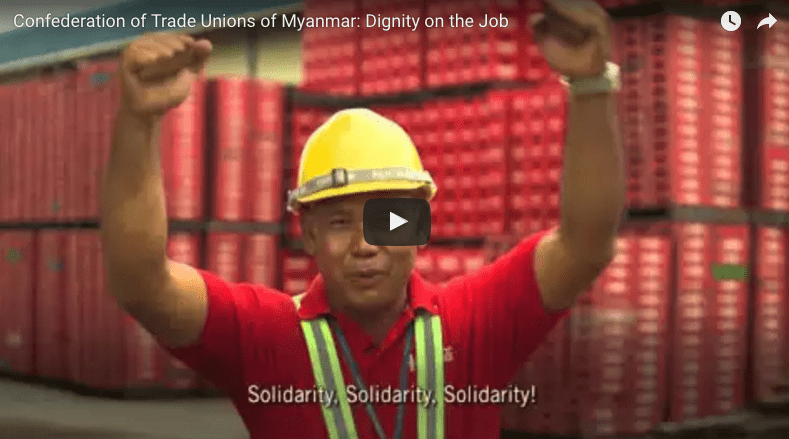
Jul 7, 2016
Workers in Myanmar are free to form unions for the first time in decades since the start of a military dictatorship. At the Coca-Cola plant in Yangon, workers are members of the Confederation of Trade Unions of Myanmar.
“We need to form more unions in our country, Myanmar,” says Ko So Ko Ko Naing, a processing technician at Coca-Cola. “Only then can we achieve a safe work environment that we all want.”
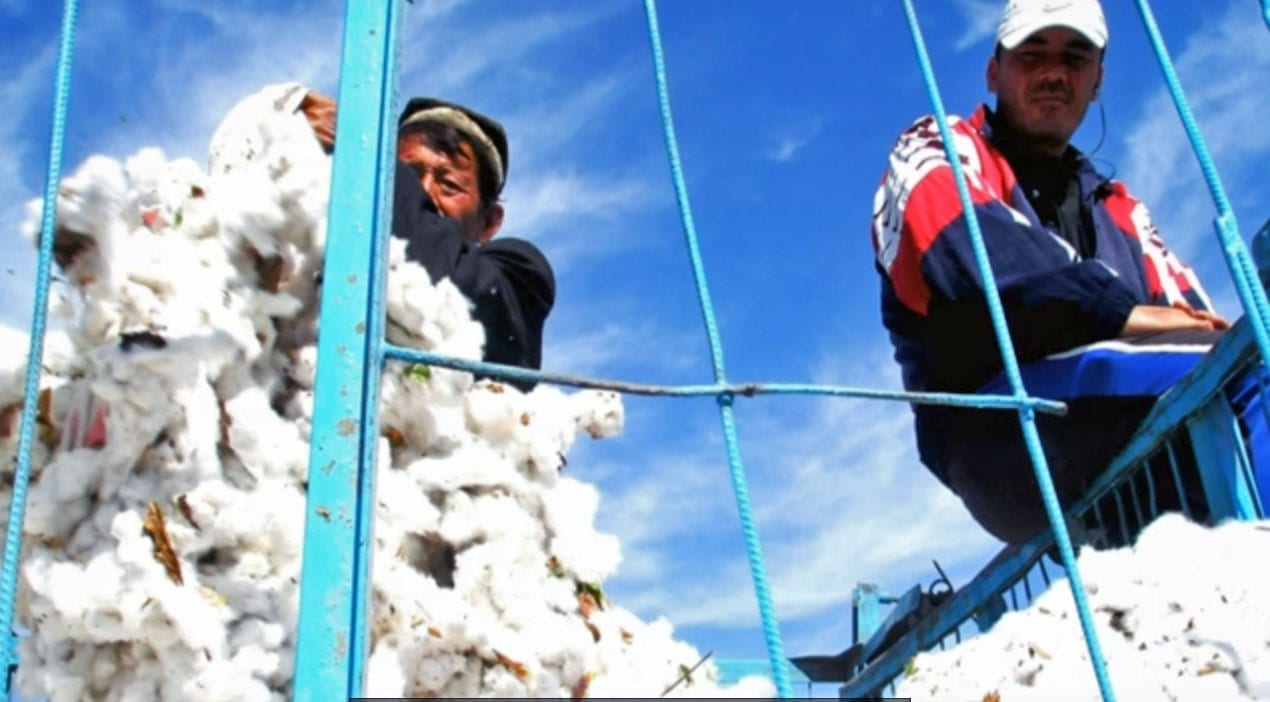
Jun 30, 2016
Uzbekistan and Turkmenistan, two countries where forced labor in cotton harvests is rampant, have been downgraded to the lowest ranking in the U.S. State Department’s 2016 Trafficking in Persons Report released this morning. The report also downgraded Myanmar (Burma) but boosted the ranking of Thailand, which a coalition of labor and human rights groups says has not meaningfully addressed human trafficking and should not have been upgraded.
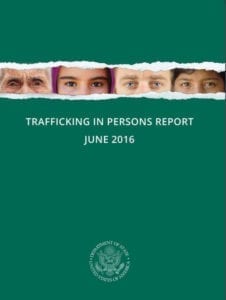 The report, which ranks countries based on their efforts to fight forced labor and human trafficking, downgraded Myanmar, Uzbekistan and Turkmenistan to the lowest level (Tier 3), meaning their governments do not comply with minimum U.S. Trafficking Victims and Protection Act (TVPA) standards and are not making significant efforts to become compliant.
The report, which ranks countries based on their efforts to fight forced labor and human trafficking, downgraded Myanmar, Uzbekistan and Turkmenistan to the lowest level (Tier 3), meaning their governments do not comply with minimum U.S. Trafficking Victims and Protection Act (TVPA) standards and are not making significant efforts to become compliant.
Each year, the Uzbek government forces more than 1 million teachers, nurses and others to pick cotton for weeks during last fall’s harvest. Last year, the government went to extreme measures—including jailing and physically abusing researchers independently monitoring the process—to cover up its actions.
In 2015, the State Department boosted Uzbekistan from Tier 3 to the “Tier 2 Watchlist,” saying the country was making efforts to become compliant with the TVPA, a move rejected by human rights activists who each year risk their lives to document widespread forced labor during cotton harvests.
Thailand Should Not Be Upgraded
Moving Thailand from the report’s lowest ranking is not warranted, according to a 13-member coalition, the Alliance to End Slavery and Trafficking (ATEST), which includes the Solidarity Center.
“Thailand’s lack of policy implementation and meaningful change on the ground calls for the lowest Tier 3 ranking,” says Kristen Abrams, ATEST acting director.
In June 2014, the State Department downgraded Thailand to the lowest ranking, due to reports of migrant workers, primarily from Burma and Cambodia, working in slave-like conditions on Thai fishing boats, fueling the country’s $7.3 billion seafood export industry and making it the world’s third-largest exporter. Today, many migrant workers still toil in forced labor and are held against their will on the boats where they are beaten and even killed. Thailand’s estimated 3 million migrants make up 10 percent of its workforce, but in seafood processing the make up 90 percent.
In releasing the report, U.S. Secretary of State John Kerry highlighted the plight of domestic workers, many of whom are working in countries far from their homes and are especially vulnerable to exploitation and abuse. Kerry announced the creation of a model contract for domestic workers based on international standards and a memorandum of understanding for origin and destination countries that sets clear standards designed to prevent the abuses of domestic work.
‘Malaysia Has Done Little to Address Trafficking’
This year’s report also fails to fix last year’s controversial upgrade of Malaysia, according to the coalition.
“More than a year after the discovery of mass graves of trafficking victims along the Malaysia-Thailand border, there is little evidence that Malaysia has taken anything more than meager steps to address its troublesome human trafficking situation,” Abrams says.
Among the 27 countries on Tier 3, the lowest ranking, are Algeria, Burundi, Haiti, Russia, Venezuela and Zimbabwe.
Profits from forced labor account for $150 billion per year, according to the International Labor Organization (ILO).
The report organizes countries into tiers based on trafficking records: Tier 1 for nations that meet minimum U.S. standards; Tier 2 for those making significant efforts to meet those standards; Tier 2 “Watch List” for those that deserve special scrutiny; and Tier 3 for countries that are not making significant efforts.
The Trafficking in Persons report, which has been issued annually for 16 years, covers 188 countries and is required by the 2000 TVPA law.





 The report, which ranks countries based on their efforts to fight forced labor and human trafficking, downgraded Myanmar, Uzbekistan and Turkmenistan to the lowest level (Tier 3),
The report, which ranks countries based on their efforts to fight forced labor and human trafficking, downgraded Myanmar, Uzbekistan and Turkmenistan to the lowest level (Tier 3),